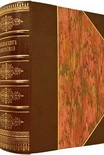The Twelve Lives of Alfred Hitchcock by Edward White (an ebook reader txt) 📗

- Author: Edward White
Book online «The Twelve Lives of Alfred Hitchcock by Edward White (an ebook reader txt) 📗». Author Edward White
When Claude Chabrol—accompanied by Truffaut—interviewed Hitchcock in 1954, he described it as a thoroughly Hitchcockian experience: compelling, disorientating, but ultimately one big joke at his expense. Hitchcock was engaging, but not quite engaged. “We don’t know where to begin with this crafty dissembler,” writes Chabrol, describing how he and Truffaut watched Hitchcock perform, substituting serious answers with jokes and “anecdotes that apparently have ceased to make him laugh some time ago.” At the point that Hitchcock insists that he has no regard for any of his American films, Chabrol realizes that “none of this is serious; he’s just taking us for a ride.” To the Italian writer Oriana Fallaci, Hitchcock was pretty explicit in admitting the pleasure he took in leading journalists up the garden path, straight into a brick wall: “You have to write an article about me,” he said toward the end of a playful, almost flirtatious conversation, “and you don’t know anything about me.” “But I do,” retorted Fallaci. “With all your cordial humor, your nice round face, your nice innocent paunch, you are the most wicked, cruel man I have ever met.”
The English sense of humor—more usually, but less precisely, conflated into the British sense of humor—is often spoken about, not least by the English themselves, as some complex curiosity. In truth, there is nothing elevated about English humor, though elements of it may be distinctive. Its biggest defining feature is perhaps its ubiquity in social interactions among the English. Which is not to say that the English are funnier than any other people, just that even the least funny among them habitually revert to humor as a means of communication, often to mask emotional reserve. A case in point is Hitchcock and his mental Rolodex of daft one-liners and weak puns of which he made frequent, extensive use. Actors were told to mind the “dog’s feet,” meaning “pause”; “don’t come pig’s tail,” he advised dinner guests, meaning “don’t come too early”; “Hitch, without the cock” is how he sometimes introduced himself. Desmond Tester, the boy who played the hapless Stevie in Sabotage, was addressed as “the testicle” on set; Georgine Darcy (Miss Torso in Rear Window) would be asked whether she had indulged in “mastication” during her lunch break. Although such gags grated on some, Darcy adored Hitchcock and his juvenile wordplay. The same was true of Cary Grant, who bonded with Hitchcock over a shared sense of humor. Grant filled pages of notepaper with groan-inducing puns, cheesy jokes, and lightweight witticisms, including a list of spoof film credits that Hitchcock once recited to a reporter: a camera operator by the name of “Otto Focus,” an editor called “Eddie Tor,” and so on.
In explaining the English sense of humor, the anthropologist Kate Fox says “seriousness is acceptable, solemnity is prohibited. Sincerity is allowed, earnestness is strictly forbidden. Pomposity and self-importance are outlawed.” George Orwell put it even more succinctly when he said that humor is “dignity sitting on a tintack.” It’s a decent working definition of a type of joke that occurs in Hitchcock films from the 1920s to the 1970s, in which Hitchcock attempts to undermine, deflate, and ridicule those who get too big for their boots—including himself, in some of the cameos in which he sends himself up as a passenger who gets bullied by a kid on the train, an exasperated photographer lurking outside a courthouse, a man who has a bus door closed in his face during the New York rush hour. In Murder!, Hitchcock put his lead character, Sir John Menier, through a similarly demeaning experience when he is awoken in a boardinghouse by an army of unruly children and their animals who charge into his room and leap onto his bed. At the same time as making the English version of the film, Hitchcock was filming an exact replica with a German-speaking cast, and he claimed that this scene was struck from the German version as it was deemed inappropriate for a man of such standing to have his dignity compromised for no apparent reason. Hitchcock was bemused: to him, there was nothing funnier than seeing people brought down a peg. There’s even a hint of this in the famous Mount Rushmore scene in North by Northwest, for which Hitchcock’s original idea was for Cary Grant to have a sneezing fit while inside Lincoln’s nose, a funny tableau that would gently mock American reverence for the monument. The humor in Hitchcock’s work might help explain why he never won an Oscar, an award that almost always favors the “serious” over the comedic. He was nominated five times, though three of those—Rebecca, Lifeboat, and Spellbound—are among the most earnest work he ever made, and although Hitchcock thought Psycho was funny, few others agreed.
On the whole, Hitchcock found a way of translating his humor for American audiences, although it took several years for him to produce work that fused menace and humor as the best of his late English work had. When he did so, it was two American writers who most effectively captured his comedic voice. One was James Allardice, the man responsible for Hitchcock’s television monologues; the other was John Michael Hayes, screenwriter of The Trouble with Harry, a much-overlooked gem of the Hitchcock canon, valuable not only because it is well structured and highly entertaining but also because Hitchcock felt it reflected much of his personality. Adapted from the novel by





Comments (0)